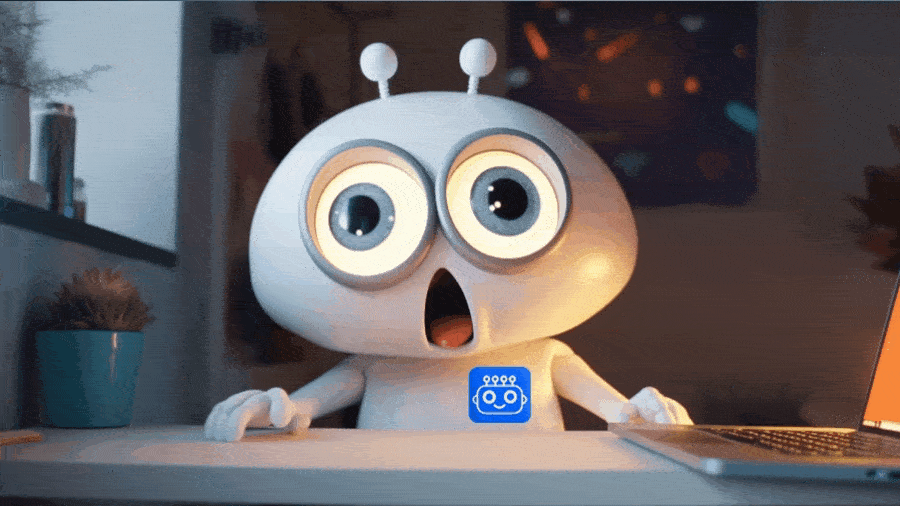COPSol.com is dedicated to helping AI writing and AI anti-detection fans learn about the latest tools, AI writing-related gold nuggets, and ninja tips to take their most critical writing projects to the next level.
So, before we dive deep and introduce you to the rockstar crew behind COPSol.com (just scroll down a bit for that), you’re probably scratching your head thinking …
… “COPSol.com”? What’s the story behind that quirky website name?
.
Cognitive Optimization Problem Solutions (COPSol) … What The Freak Is That?
Before you hit the back button or close this browser because of “nerd speak” which you think might blow your brain to the core, stay with me.
Don’t worry, I’ll break it down for you so you can understand what it means.

You see, artificial intelligence (AI) is like an over-eager puppy. It’s enthusiastic, it learns, it adapts, but man, it can be confusing at times.
Cognitive functions, in our context, are like puppy tricks—fetch, roll over, play dead, and so on. For AI, these tricks translate into things like learning, problem-solving, and language understanding. Basically, anything we humans would casually do while sipping our morning coffee.
Now, just as your puppy needs the training to perfect these tricks, AI also needs a bit of work (understatement of the century).
This is where Cognitive Optimization comes in.
Let me explain with a few examples:
- Algorithmic Improvements. Picture teaching your puppy a new version of fetch. You’re not just throwing a ball—you’re adding zig-zags, obstacles, you name it! Similarly to that, we sometimes need to teach our AI some new tricks to improve their efficiency or the quality of their results.
- Parameter Tuning. This is akin to adjusting the length of your fetch game. Too short, and the puppy is still bouncing off the walls. Too long, and you risk tiring out the poor thing. Striking the right balance is key, just like adjusting AI parameters for significant performance boosts.
- Architecture Design. This one is kind of like the layout of your puppy’s obstacle course. The design of an AI system’s architecture affects its ability to learn and perform. Researchers are like professional dog trainers constantly tweaking the course for optimal results.
- Training Techniques. This one’s self-explanatory. The way we train the AI, just like the way we train the puppy, greatly impacts their abilities. Better techniques equal better performance.
Now, if you think about it, the meaning of “cognitive optimization” can be a shapeshifter—it varies based on the context. Much like how ‘sit’ could mean a simple butt-to-floor action at home, but a whole theatrical performance at a dog show!
Here’s a reality check, though: AI is not perfect.
Yep, I said it.
It’s like that puppy who still confuses ‘sit’ with ‘fetch’.
Complex language nuances, contextual understanding, you name it—AI still fumbles.
That’s a Cognitive Optimization Problem (COP).
Plus, despite advancements, AI systems heavily lean on the data they’re trained on. Biases or errors in data can turn into a messy game of fetch real quick.
And guess who’s the diligent pet owner in this scenario?
That’s right, we humans.
It falls upon us to refine these AI systems, correct their errors, and add that human touch where machines falter.
We’re the ones making the ethical calls and adjusting functionality based on our needs.
We, humans, help in finding or providing Solutions (or Sol for short, get it?) to AI’s cognitive optimization problem.
So, in a nutshell, while AI is a brilliant tool that can augment our abilities, it needs our help to reach its potential.
As human users of AI, we are indispensable trainers in shaping AI into a handy and user-friendly companion.
There is no doubt that we are in for an explosive, life-changing era where AI can be used to help us achieve our goals, whether it be personal, career-oriented, or business.
AI is now available to aid you, inspire you, and help you become more productive.
It’s here to help you maximize your creativity.
It’s here to help you connect with your audience.
But remember, you’re the captain of the ship. You’re the master of your creation.
AI is here to help you navigate the seas of creativity, not to take the wheel.
Here at COPSol.com, our mission is to help bridge the gap between AI and people.

Our limitations and expertise with AI are specific to training techniques. It’s about the prompts. It’s about mastering the available AI tools and their capabilities.
We’ll do our best to help you master, maximize, and get the most out of AI tools so that you can be more productive and achieve your goals.
So, let’s embrace these advancements. Let’s utilize these AI tools …
… but let’s never forget – the essence of creativity lies within us, not in algorithms.
Let’s enjoy the ride!
Steve The AI Guy + Team COPSol
(Cognitive Optimization Problem Solutions)
–
Meet Team COPSol
Steve The AI Guy, BrAIns-In-Chief & Editor-In-Chief
![]() Meet our resident tech wizard, Steve the AI Guy. Now, before you get any wild ideas, let’s clear up one thing – he’s 100% human! I mean, he’s got the work history to prove it.
Meet our resident tech wizard, Steve the AI Guy. Now, before you get any wild ideas, let’s clear up one thing – he’s 100% human! I mean, he’s got the work history to prove it.
He spent a decade diving into the deep end of the tech industry doing business intelligence work, splashing around with two of the world’s largest business consulting companies, Deloitte and Ernst & Young.
But hold onto your USBs, folks, because this tech-savvy guy isn’t all about business intelligence.
Oh no, he’s also an SEO maestro. He can make a website pop up on a Google search faster than you can say “Hello there, baby!”
Some of the biggest names in software and online services have knocked on his door, begging to borrow a bit of his expertise to help promote their products and services online. It’s a human touch that even the best AI can’t replicate.
Who needs a panic button like ‘Control-Alt-Delete’ when you have the AI Guy around? He’s like a walking, talking ‘Escape’ key with a side of ‘F5’ refresh!
Need to pick his brain? Drop him a line at: steve [@] copsol.com
–
Leah Marie, Editor & Contributor
 Meet Leah Marie, a literary virtuoso who harmonizes AI, health, and science like a linguistic Mozart.
Meet Leah Marie, a literary virtuoso who harmonizes AI, health, and science like a linguistic Mozart.
For over a decade, she’s been churning out top-notch content for the internet’s high rollers, and she isn’t showing signs of writer’s cramp yet. Her literary endeavors have made the web a more fascinating place, one sentence at a time.
She’s like the Sherlock Holmes of composition, navigating the labyrinthine alleyways of AI, health, and science.
But don’t let her intellectual pursuits fool you. Behind the scholarly exterior is a riot who can turn the most serious topic into a laugh riot.
So, dear readers, next time you find yourself engrossed in a brilliantly written article, remember – it might just be another mystery solved by our literary Sherlock.
You can ping this linguistic Mozart at: leahmarie [@] copsol.com
.
.
.

